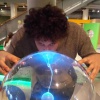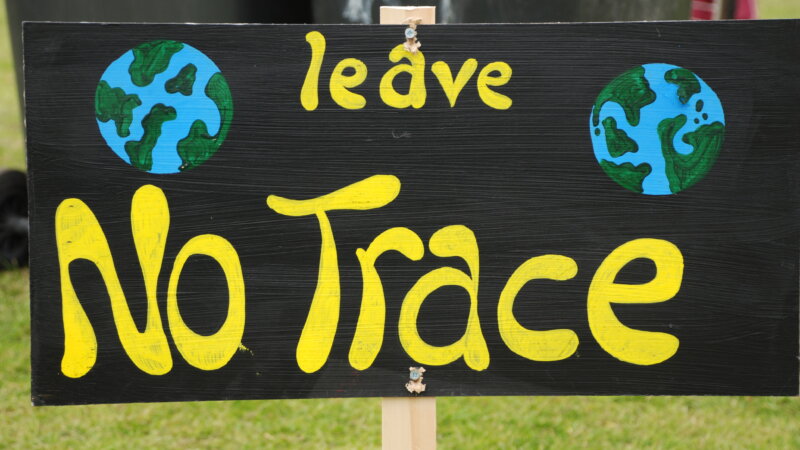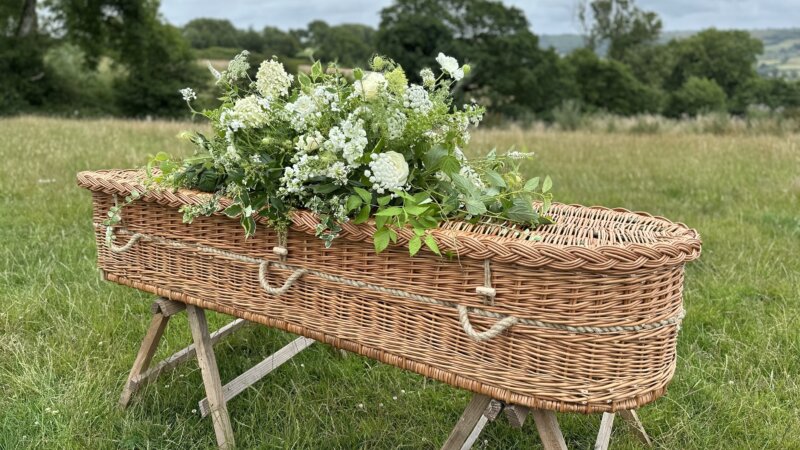Dave Haslam: Life After Dark: Nightclub Histories
Dave Haslam is a journalist, author and DJ based in Manchester. Starting out as a promoter, he began DJing in Manchester at clubs including The Boardwalk and The Haçienda, where he played over 450 times from the late 80s until its closure.
Dave has written three books: Not Abba: The Real Story of the 1970s, Adventures on the Wheels of Steel: The Rise of the Superstar DJs, and Life After Dark: A History of British Nightclubs & Music Venues, the latter of which he spoke about while in Sheffield last month.
Life After Dark traces the roots of the UK's nightclub culture back through Victorian dance halls, jazz clubs, venues that gave a platform to 70s icons-to-be, reggae soundsystems and the birth of dance music culture, drawing out areas of common ground across a period of 200 years.
Sheffield has a long and colourful nightlife history, but younger readers might not be aware of a lot of it. What particular examples do you draw out in your book?
Well, none of your readers will remember the 1870s, but back then the biggest building in Sheffield was a 3,000-capacity music hall run by a fella called Thomas Youdan. You'd get singers, musicians and comedians onstage there, and also performing dogs and other bizarre stuff. The best thing is that at this point Sheffield hadn't got round to building a Town Hall. I love that the city had a major music venue before it had a Town Hall. An admirable sense of priorities.
Another standout example relating to Sheffield in the book is a gig in September 1978 at the Limit club on a Monday night, a local band night. Bands on that night included the Human League and Def Leppard, both at the time a long way from their chart-topping, stadium-filling years of success. You could have been there - it was even free entry.
How significant was Sheffield's nightlife on a national scale during the time period you look at and how does its history compare with Manchester's?
1977-1982 was very lively. You had some good dance clubs in Sheffield and some inspiring bands - Cabaret Voltaire, Vice Versa (who mutated into ABC), the Human League. All these bands had a big national profile. But one of the things that strikes me about Sheffield is that it's mostly about the underground. The underground scene in the city is always great and happy to stay underground. Manchester is so keen to be loved and admired, but Sheffield just gets on with it. One example I write about in the book is Jive Turkey, a club night in Sheffield in the second half of the 1980s. There the music policy and the vibe was unique and every bit as forward-thinking as the Hacienda, but although it was much loved in Sheffield, it never got the acclaim nationally.
Tracing the past of music venues and nightlife, have you found common themes across all time periods and locations or is our experience of a night out fundamentally different to what was offered at Victorian dance halls?
A surprising number of things seem common over the years - the hunger for escape and the desire for good times, and the way music soundtracks each generation, for example. Generally, it's also instructive how each new revolution or mini-revolution in nightlife - like mod, or punk, or acid house - starts in just a few small spaces, usually dodgy clubs a bit off the radar, and grows into something neutered and mainstream. In the book I concentrate a lot on those small scenes and little centres of activity. One good example is the Dug Out in Bristol, a pretty basic building outside the city centre where the Wild Bunch would DJ in the mid 1980s. The Wild Bunch evolved into Massive Attack.
Was it a challenge to do the research for this book? A lot of club history isn't documented too well, so presumably it involved a lot of interviews and digging through old flyers.
Lots of digging about yes, and interviews. I interviewed Noddy Holder from Slade, thinking of all the chaotic gigs they played when they were a chart-topping band in 1972-ish, but he started telling me about the first venues he went to in the Black Country, and it was fascinating. He told me all about a place where Robert Plant met John Bonham, years before Led Zeppelin. I interviewed Ed Simons from the Chemical Brothers. That was good - hearing about their early influences, but also about how they prepared for big events like Glastonbury. And I went all the way to Bristol to see the building that once housed the Dug Out. It's now a Korean restaurant.
Did you look at all at how British nightlife compares with similar histories in other countries? There's a whole book in the influence and cross-pollination between the UK and US, for example.
You're right. Through the eras I write about you see a lot of interest in Harlem in the 1920s, but also in lots of decades there's been an interest in Paris. The Cavern in Liverpool was called that because the original owner loved a jazz club in Paris called Le Caveau. I didn't realise that. In the 1970s, Studio 54 in New York was a big influence, but earlier in the 1970s people thought Spain was very trendy. That was when everyone was discovering Benidorm, that whole holiday scene, and coming back and impressing the neighbours. A club in Manchester opened back then called the Del Sol to cash in on Benidorm being trendy.
How do you feel about the present and future of clubbing in the UK?
I'm optimistic. The book takes a long 200-year perspective and you realise there are peaks and troughs, but often when things look quiet it's because all the good stuff is under the surface. I think mainstream clubbing is duller than it's ever been, but creative people out on the margins are doing good things in all kinds of spaces. The nightlife in cities like Sheffield, Liverpool and Manchester attracts interesting people and the cities have lots of unused buildings and warehouses where people can do one-offs. It's good - always interesting, always exciting.
davehaslam.com
)







